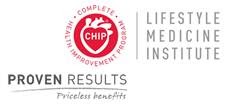by guest blogger Jody Perrecone
Earlier this month, I attended Veggie Fest in Naperville, Illinois. Not just for vegetarians, this festival drew over 25,000 people, had food demonstrations, dozens of speakers, and over 100 booths.
References:
1 Cancer Lett. 2008 Aug 18; 267(1):133-64. doi:10.1016/jcanlet.2008.03.025.Epub 2008 May 6.
Earlier this month, I attended Veggie Fest in Naperville, Illinois. Not just for vegetarians, this festival drew over 25,000 people, had food demonstrations, dozens of speakers, and over 100 booths.
One of the speakers was Sara Sukumar, PhD, Professor of Oncology and Pathology and Director of the Breast Cancer Program at Johns Hopkins University. She spoke on anti-cancer properties in specific foods. Here is her list:
- Cruciferous Vegetables - This includes broccoli, cabbage, Brussels sprouts, kale, bok choy, cauliflower, collard greens, radishes, and watercress. They contain the chemical, sulforaphane, that excites the good enzymes and suppresses the enzymes that are harmful to the body. Cruciferous vegetables boost our immunity system and prevents cancer-causing chemicals from entering the cells.
- Green Tea - Contains catechins which prevents cells from mutating. Mutated or damaged cells do not properly interpret the signals that tell it how to work, thus the cells can reproduce uncontrollably.
- Garlic - Allicin in garlic blocks the formation of cancer-causing substances and can reduce colorectal cancer risk by 50%.
- Turmeric - This spice is protective against all types of cancers. Curcumin is the active ingredient in turmeric. A study a MD Anderson Cancer Center discovered curcumin’s amazing ability to differentiate cancer cells from normal cells and create cell death in cancer cells only, while promoting better cell health in non-cancerous cells [1].
- Exercise - Lean people lead healthier lives and live longer. Exercise boosts the immune system. Dr. Sukumar recommends 30 minutes of exercise a day. “No time for exercise now? You better have time for illness later” says Dr. Sukumar.
- Reduce Stress - Life and stress cannot be separated, but learn how to manage stress. Stress releases bad hormones into the body and can give a sense of ill being.
Dr. Sukumar reported poor diets are responsible for 30% of all cancers and 80% of all heart disease. Her recommendations listed are not difficult to incorporate into our lives.
The point is this - the food we eat can work for us or against us. Make sure what you are eating is working for you by making these foods a part of your diet. Replace foods you may be eating now that are high in fat, sugar, and salt with natural foods including vegetables, fruits, whole grains and legumes that have the perfect balance of nutrients working for us.
Jody Perrecone is a corporate manager for the Complete Health Improvement Project (CHIP). CHIP is an international wellness program focusing on lifestyle interventions to create a healthier workforce and reduce overall healthcare costs. Jody works with hospitals, corporations, and communities to offer CHIP programs throughout the U.S.
If you like what you see here then you'll LOVE our daily Facebook and Twitter posts! Also, don't forget to sign up for Our Free Online Mailing List to get all the latest updates from the Plant-Based Pharmacist!
Check out Dustin Rudolph's book The Empty Medicine Cabinet to start your journey towards better health. This step-by-step guide leads you through many of today's common chronic diseases (heart disease, obesity, diabetes, cancer, and more), giving you the facts on foods versus medications in treating these medical conditions. The book also contains an easy-to-follow guide on how to adopt a whole foods, plant-based diet as a part of an overall lifestyle change, producing the best possible health outcomes for you and your family. Hurry and get your copy today!
.jpg) |
| by Dustin Rudolph, PharmD Clinical Pharmacist |
Check out Dustin Rudolph's book The Empty Medicine Cabinet to start your journey towards better health. This step-by-step guide leads you through many of today's common chronic diseases (heart disease, obesity, diabetes, cancer, and more), giving you the facts on foods versus medications in treating these medical conditions. The book also contains an easy-to-follow guide on how to adopt a whole foods, plant-based diet as a part of an overall lifestyle change, producing the best possible health outcomes for you and your family. Hurry and get your copy today!
We'd love for you to join us in spreading the good word about plant-based nutrition and lifestyle medicine by telling your family and friends about our website at www.PlantBasedPharmacist.com.
Share and rate this post below or tell us what you think by posting a comment. Thank you again for stopping by and until next time... be happy, be healthy, and live the life you've always dreamed of!
References:
1 Cancer Lett. 2008 Aug 18; 267(1):133-64. doi:10.1016/jcanlet.2008.03.025.Epub 2008 May 6.




























No comments:
Post a Comment
Note: Only a member of this blog may post a comment.